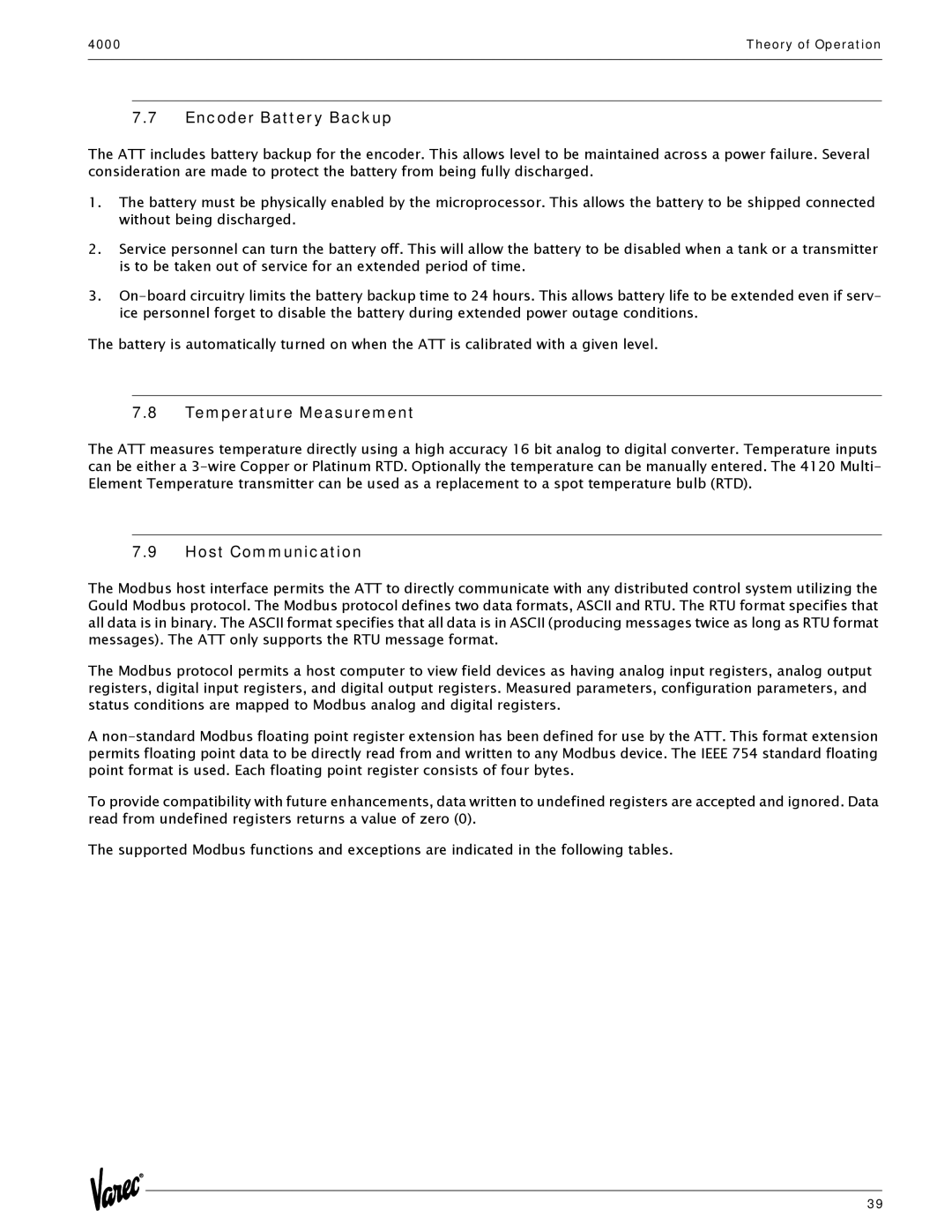
4000 | Theory of Operation |
|
|
7.7Encoder Battery Backup
The ATT includes battery backup for the encoder. This allows level to be maintained across a power failure. Several consideration are made to protect the battery from being fully discharged.
1.The battery must be physically enabled by the microprocessor. This allows the battery to be shipped connected without being discharged.
2.Service personnel can turn the battery off. This will allow the battery to be disabled when a tank or a transmitter is to be taken out of service for an extended period of time.
3.
The battery is automatically turned on when the ATT is calibrated with a given level.
7.8Temperature Measurement
The ATT measures temperature directly using a high accuracy 16 bit analog to digital converter. Temperature inputs can be either a
7.9Host Communication
The Modbus host interface permits the ATT to directly communicate with any distributed control system utilizing the Gould Modbus protocol. The Modbus protocol defines two data formats, ASCII and RTU. The RTU format specifies that all data is in binary. The ASCII format specifies that all data is in ASCII (producing messages twice as long as RTU format messages). The ATT only supports the RTU message format.
The Modbus protocol permits a host computer to view field devices as having analog input registers, analog output registers, digital input registers, and digital output registers. Measured parameters, configuration parameters, and status conditions are mapped to Modbus analog and digital registers.
A
To provide compatibility with future enhancements, data written to undefined registers are accepted and ignored. Data read from undefined registers returns a value of zero (0).
The supported Modbus functions and exceptions are indicated in the following tables.
39
